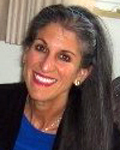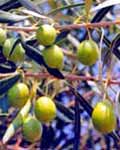ZOAN - A WONDERFUL
PLACE
by Barri Cae Mallin
|
Marvelous
things He did in the sight of their fathers, in
the land of Egypt, in the field of Zoan.
~ Psalm
78:12 ~
|
How many times
have we read a verse, especially a Psalm, and not fully
comprehended the worth of the words? Where is Zoan? Why
should this matter? The Jewish encyclopedia notes that
it was an important city in Egypt, noting that it could
have been the residence of Pharaoh. John Bright, noted
historian and scholar, affiliates Zoan with Avaris, an
ancient area in Egypt. It had to have some importance
for the author of Psalms to comment about it.
If it was indeed the residence of Pharaoh, it brings
forth a beautiful picture. Exodus 1:8-14 notes:
|
Now a new king arose over Egypt, who did not
know Joseph. He said to his people, "Behold,
the people of the sons of Israel are more
and mightier than we. Come, let us deal
wisely with them, or else they will multiply
and in the event of war, they will also join
themselves to those who hate us, and fight
against us and depart from the land." So
they appointed taskmasters over them to
afflict them with hard labor. And they built
for Pharaoh storage cities, Pithom and
Raamses. But the more they afflicted them,
the more they multiplied and the more they
spread out, so that they were in dread of
the sons of Israel. The Egyptians compelled
the sons of Israel to labor rigorously; and
they made their lives bitter with hard labor
in mortar and bricks and at all kinds of
labor in the field, all their labors which
they rigorously imposed on them. |
This passage lays
forth the groundwork of the beginning of Moses’ life. He
was not born with a silver spoon in his mouth. Before
his birth, the midwives were ordered by the Pharaoh to
kill any Hebrew baby boy by throwing them into the
river. However, the midwives defied the Pharaoh and hid
the Hebrew male infants. God smiled upon these midwives
and the Hebrew population grew, despite these heinous
orders.
In Exodus 2 we read: Now a man
from the house of Levi went and married a daughter of
Levi. The woman conceived and bore a son; and when she
saw that he was beautiful, she hid him for three months.
But when she could hide him no longer, she got him a
wicker basket and covered it over with tar and pitch.
Then she put the child into it and set it among the
reeds by the bank of the Nile. His sister stood at a
distance to find out what would happen to him.
We can assume that little baby Moses was circumcised. He
was born into a devout Jewish home, as his father,
Amram, and his mother, Yocheved, were both from the
tribe of Levi. This was such a sad event as this little
Hebrew baby boy was placed into the Nile River, near the
plain of Zoan. His mother had no idea where he was. His
sister, Miryam, watched from a distance, wondering what
would happen to her little brother.
The Jewish encyclopedia notes that Zoan was situated on
the Delta Nile and since this was the possible location
of the Pharaoh’s residence, it lines up with Pharaoh’s
daughter desiring to bathe in the Nile. She, a non-Jew,
a Gentile, saw the basket and had her maid fetch it.
Looking in, she would have known that it was indeed a
Hebrew baby, as only Hebrew babies were circumcised. She
had her maid take the child away, and nurse the baby.
Pharaoh’s daughter took great risk in this action as she
could have been sentenced to death by her own father.
What wonderful providence as she protected Moses and
even put him into the arms of her nursemaid, who was
actually the mother of Moses.
But what is as beautiful is the picture of the Pharaoh’s
daughter, the Gentile, desiring to protect the Hebrew
baby. When we think of this redemption, we often think
of Ruth and Naomi, for Ruth wanted Naomi’s God to be her
God. Yet here, many centuries prior to Ruth, we see a
beautiful picture of the love of a Gentile, caring for
the Hebrew.
In my own salvation experience, it was the love of a
Jewish believer in Jesus and a Gentile believer in Jesus
who had the courage to share the good news of Yeshua
with me over lunch, almost thirty-one years ago. I will
forever be grateful to both of them for sharing with me
that there IS truly a way out of the pit of darkness.
His name is Yeshua.
Years ago, Walt Disney brought this wonderful story
line, in their movie called The Prince of Egypt. Ofra
Haza, Israeli singer of blessed memory, sang a lovely
song in the movie:
With the sting of the whip on my shoulder, With the salt
of my sweat on my brow,
Elohim, God on high, Can You hear your people cry?
Help us now, This dark hour...
Deliver us, Hear our call, Deliver us, Lord of all
Remember us, here in this burning sand, Deliver us.
There's a land You promised us --
Deliver us to the Promised Land.
Have you ever felt as though you were in the hot sand,
you had to remain there, hard-pressed on every side,
with a taskmaster pushing you to do more, work harder,
more, more! Heartbreak, suffering, pain both emotional
or physical tears you apart. Perhaps the cry of your
heart parallels with the lyrics above. If you are a
child of God, if you know Elohim, three in One God, take
comfort, dear child of God. You are not forsaken.
Redemption will come. One may not know the hour, but one
knows the hand that holds you. His name is Yeshua; He is
your advocate, your deliverer He will bring you through
into victory. He never wastes suffering.
Thanks be to God, who gives us
the victory through our LORD Yeshua, Jesus the Messiah
(I Cor. 15:58). Nothing is
impossible with God (Luke 1:37). If Moses can
be plucked out of the Nile, in the field of Zoan by his
own mother, keep faith; trust Him to do the impossible
with your own situation.
*
Barri
Cae Mallin holds a Ph.D. in Biblical Studies from
Trinity Theological Seminary. Other devotionals by
Barri Cae may be found at www.barricae.com.
To receive them by email, inquire at
Barricae@comcast.net
.
*
Return to Home Page

|



